Be a leader in developing transdisciplinary solutions to ecological and human problems affected by social, economic, political, climate and environmental changes.
Primary Metrics
Research and development expenditures, or funds spent to conduct research, are the most frequently cited and consistent data for comparing research levels among colleges and universities. This data is reported annually through the National Science Foundation Higher Education Research and Development, or HERD, survey.
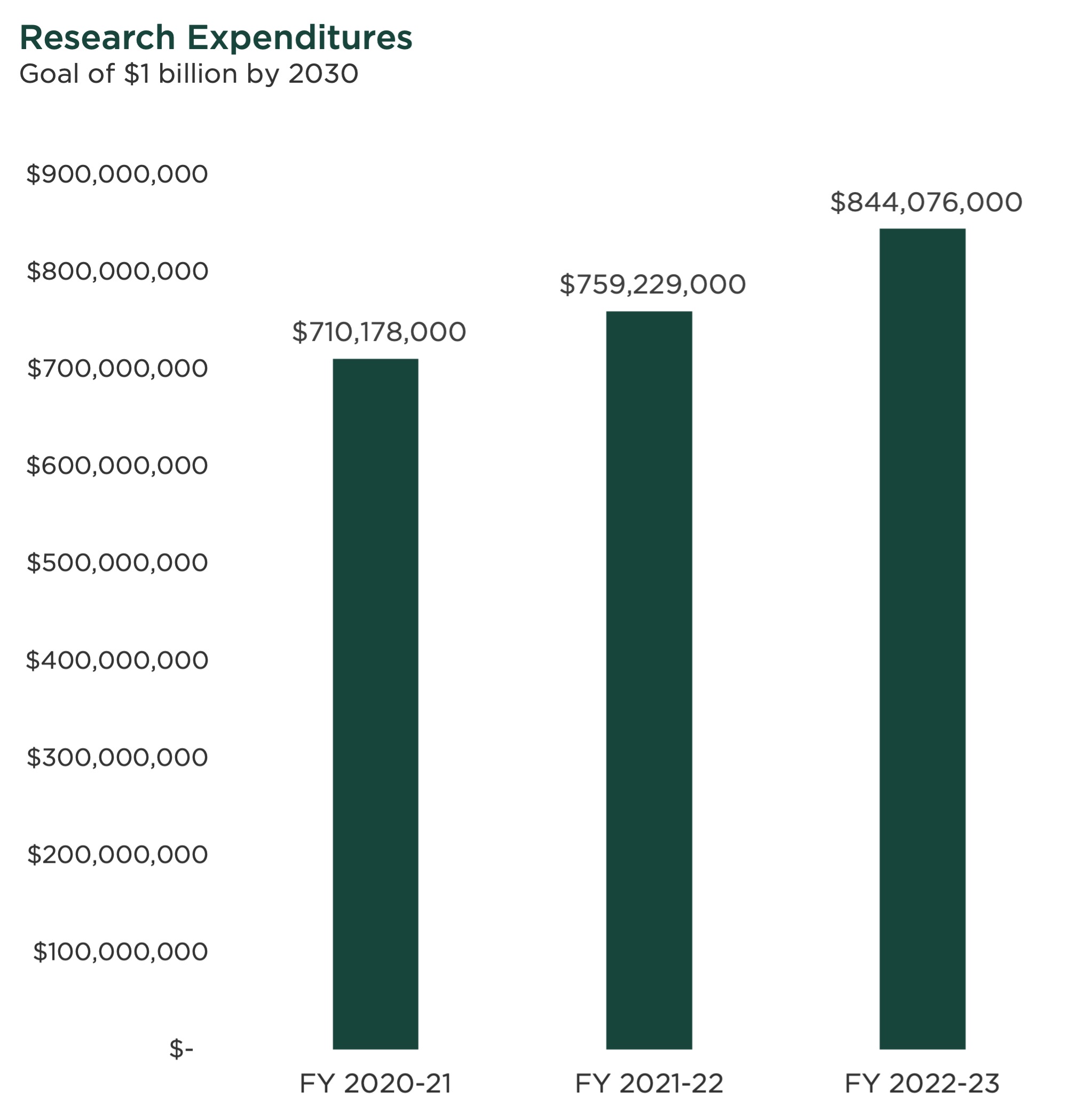
The number of proposals submitted — as well as the size and scope of resulting awards — is a leading indicator of future research expenditures.
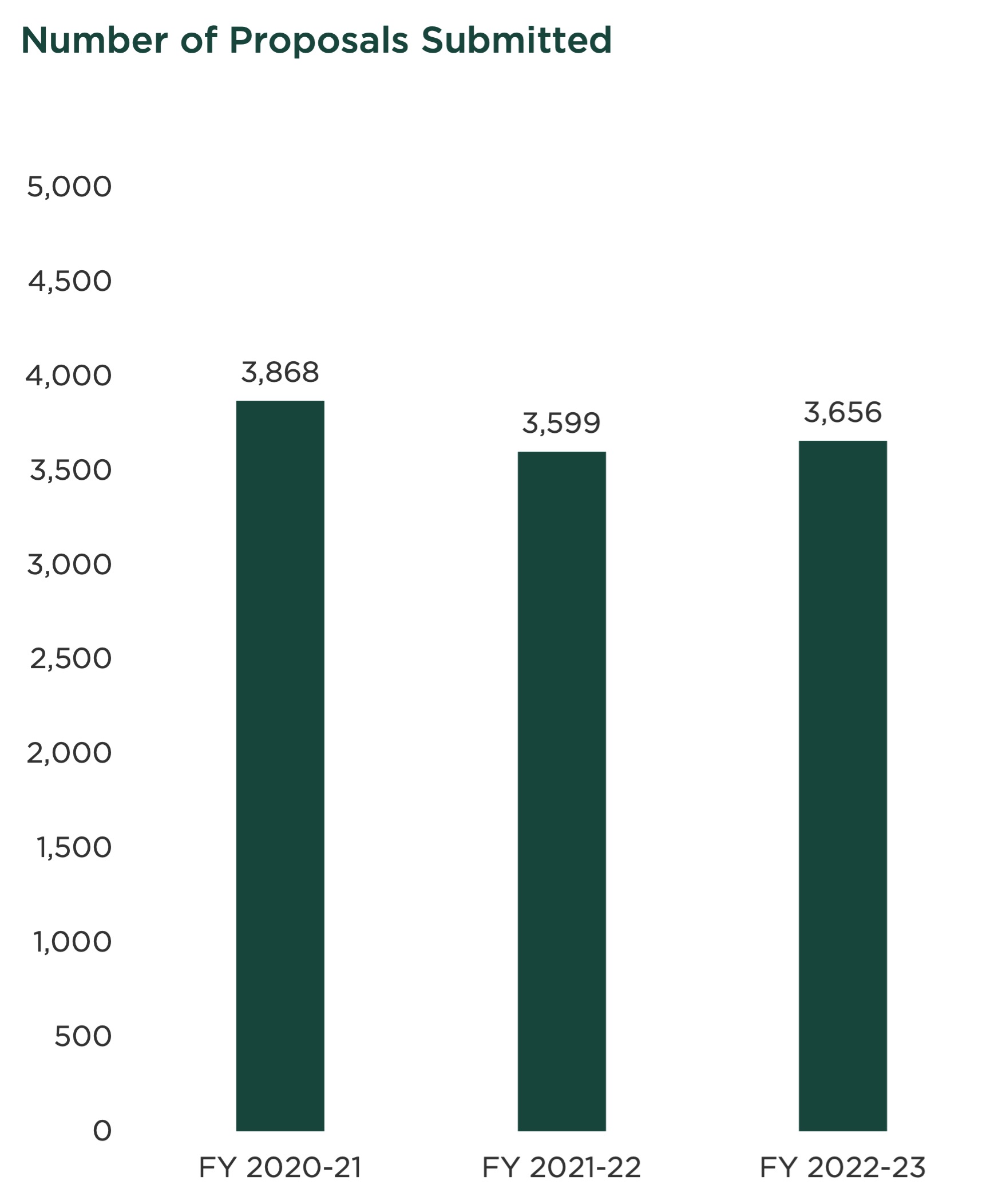
MSU is forging new partnerships with business and industry that spur innovation and enhance economic development. The university will increase and diversify sources of research support.
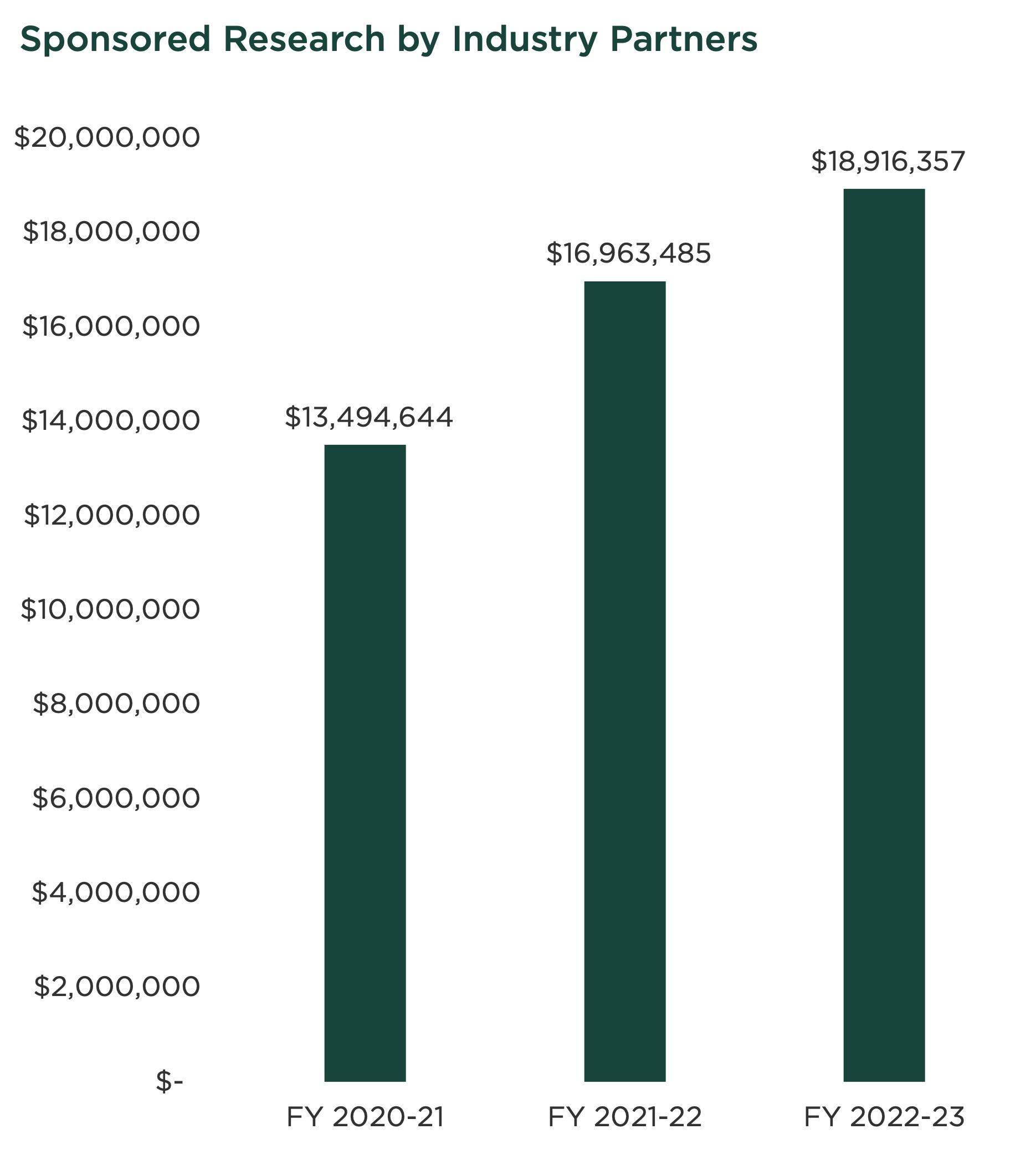
Key Initiatives

Water solutions for a changing climate
The MSU Water Alliance brings together nearly 300 faculty experts across the university to find solutions to water-related challenges through research, education and engagement with communities and industries. In addition, MSU researchers were awarded a $3 million National Science Foundation Research Traineeship. This provides support to train graduate students to be leaders in solving global water issues. The first cohort begins in the fall 2024 semester and includes trainees from engineering, computer science, biology, ecology, public health and social science.
Leveraging FRIB internationally
MSU and the French research organization Centre National de la Recherche Scientifique established the International Research Laboratory on Nuclear Physics and Astrophysics at the Facility for Rare Isotope Beams to unite top researchers from France and the U.S. for fundamental nuclear physics and astrophysics research. It is the first of CNRS’s nearly 80 international research laboratories worldwide dedicated to nuclear physics and astrophysics. The United Kingdom Research and Innovation Science and Technology Facilities Council is funding the FAUST (FRIB Accelerated beams for Understanding Science and Technology) instrument with a £3.2M investment to enable new experiments at FRIB.
Supporting interdisciplinary research
The new Tetrad Initiative fosters collaborations among faculty from across disciplines who have not worked together before, resulting in projects that create opportunities for extramural support. To participate, researchers identify collaborators from outside their departments to form a team of three. The program generated strong demand in year one and a lottery system was used to select 40 projects. Seed funding for each project was provided by the researcher’s college with a match from the MSU Research Foundation.
Focus on long-term climate resiliency
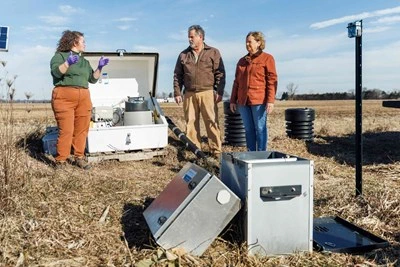
The Agricultural Climate Resiliency Program is a partnership between MSU, the Plant Coalition and the Michigan Department of Agriculture and Rural Development aimed at solving long-term water and climate-related challenges. The competitive grants program gives MSU researchers and Extension educators the opportunity to apply for funding to address issues around soil and plant health, carbon sequestration, efficient use of water and protection of water resources. In addition, the university has launched a hiring process to attract expertise in critical areas of research and outreach necessary to address such grand challenges.
The Future of Work initiative
Technologies such as artificial intelligence, machine learning, algorithmic management systems and robotics are changing job tasks and reorienting the way work is organized. The Future of Work initiative, led by the College of Social Science, is assessing how these emerging technologies and the changing nature of work affects all facets of modern life. The initiative seeks to identify organizational strategies that can best ensure inclusiveness and improve workers’ lives in the state of Michigan and beyond.
Increasing research opportunities for all
Federally funded training grants at MSU support diversity, equity and inclusion efforts by increasing diversity in training. Since developing new resources and support mechanisms for faculty to apply for these very competitive programs, the number of training grants received is up 20%. These programs also enhance the creation of equitable and inclusive research environments that support the training and career development of every student, postdoctoral fellow and faculty member at MSU. Data from past cohorts indicate that 90% of the students who participate in these programs are accepted to graduate programs at MSU and at other prestigious universities.
Investing in arts
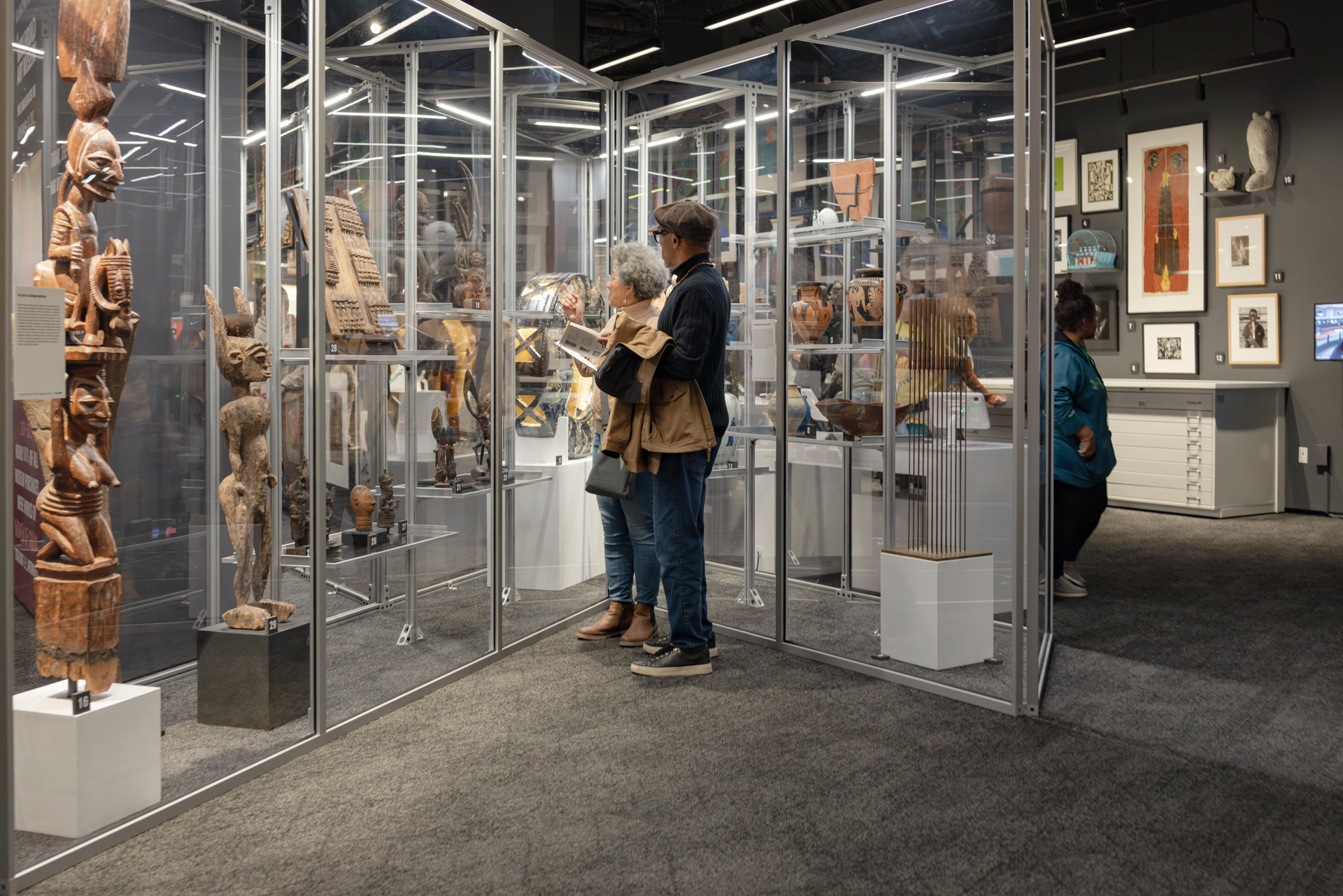
The team at the Broad Art Museum sought to rethink what a visit to an art museum can be with the opening of The CORE – the Center for Object Research and Engagement. Made possible through the largest capital campaign since the museum was constructed, The CORE is providing new ways for the MSU community to experience, interact with and interpret art. In addition, a significant renovation to the MSU Museum will advance it as an integral part of research, teaching and engagement as well as allow the staff to redefine what it means to be an interdisciplinary academic museum in the 21st century.
More Key Initiatives
Spotlight Stories
Campus recognized as state of Michigan featured mobility testing asset
MSU, Corewell Health mark 17-year partnership by adding $1M investment in exploratory research
MSU Research Foundation helps turn Spartan discoveries into impact
Awarding nearly $400 million in grants since its inception the foundation has helped position MSU as a leading global public research university on the rise.
MSU, Corewell Health mark 17-year partnership by adding $1M investment in exploratory research
Five new projects, each receiving $200,000 in research funding, will begin next year.
More Stories
- Dec. 18, 2024: The MSU Research Foundation helps turn Spartan discoveries into impact
- Nov. 25, 2024: MSU, Corewell Health mark 17-year partnership by adding $1M investment in exploratory research
- Nov. 22, 2024: Podcast: MSU research powers Michigan’s economy and future
- Nov. 14, 2024: FRIB research team identifies flaw in physics models of massive stars and supernovae
- Oct. 14, 2024: MSU to hold first Health Equity Symposium
- Oct. 9, 2024: Secretary of Energy’s Achievement Award
- Sept. 3, 2024: Global Impact Initiative success leads to new phase
- June 28, 2024: MSU to expand chip-testing facility at FRIB to meet critical national need
- June 19, 2024: New FRIB precision measurement program advances understanding of proton halos
- April 28, 2024: New Agricultural Climate Resiliency Program funds four projects
- April 15, 2024: New MSU dairy, greenhouse facilities critical to ag research, food production
- March 18, 2024: MSU researchers turn the tide for safer, healthier water
- March 13, 2024: MSU drives conversation, research on the future of work
- Feb. 28, 2024: MSU is transforming the art museum experience
- Feb. 19, 2024: MSU hits research milestone, breaking previous records for total expenditures
- Feb. 19, 2024: Tetrad Awards announced for 2024
- The CORE grand opening
- Plant science recruiting initiative kicks off
- FRIB awarded $115M for High Rigidity Spectrometer project
- Arts MSU to put 'creativity at the heart of all we do'
- MSU recognized for economic development prowess
- Department of Energy awards $529M to FRIB
- MSU and US Army launch new mobility research initiative
- MSU hits record $759M in research expenditures in 2022
- MSU to refurbish world’s first superconducting cyclotron for chip testing
- The Spartan scientists helping agriculture adapt to a changing planet
- MSU's Long-Term Ecological Research program awarded $7.6 million NSF grant
- Developing more resilient food systems
- MSU Research Foundation awards $5M grant
- MSU researchers part of $15M NASA grant to help US farmers
- How do we double ag production to feed 9 billion people?
- $5.5M MSU Federal Credit Union gift to support the arts at MSU
- Advancing autonomous vehicles to usher in a safer future
- How teamwork — in nature and the lab — can teach us about climate change
- MSU Museum reveals new look and purpose
- Michigan State science is returning to space with NASA
- Opening doors to discovery